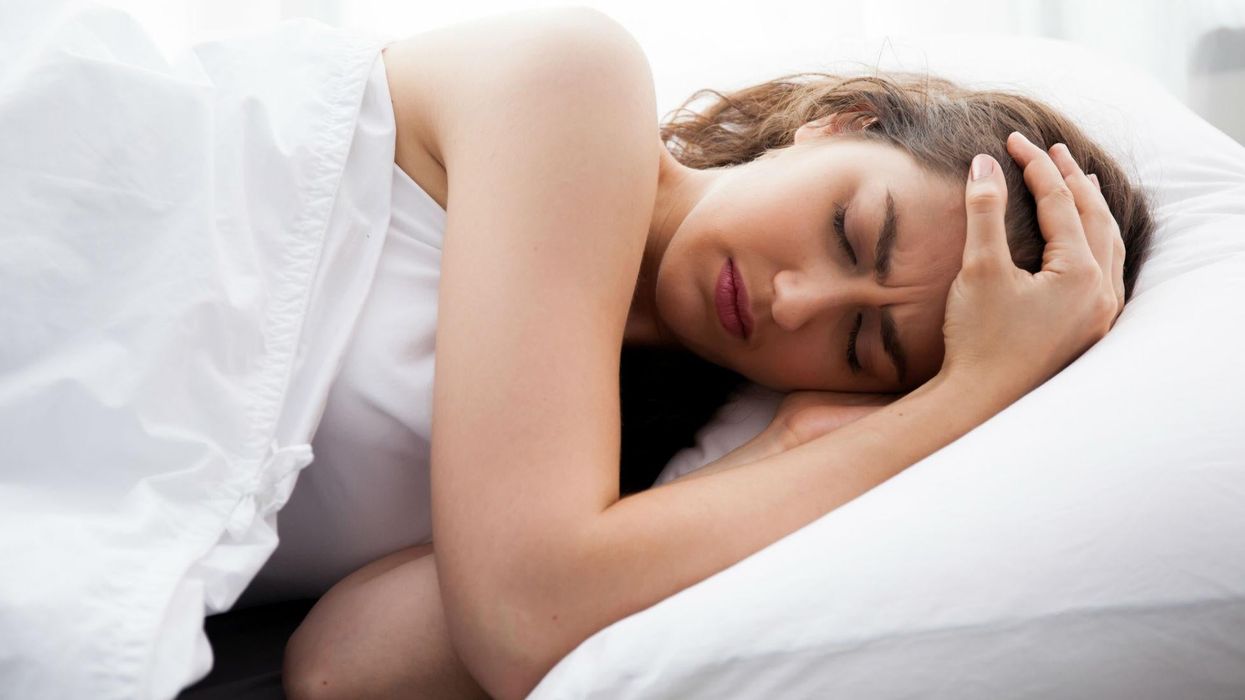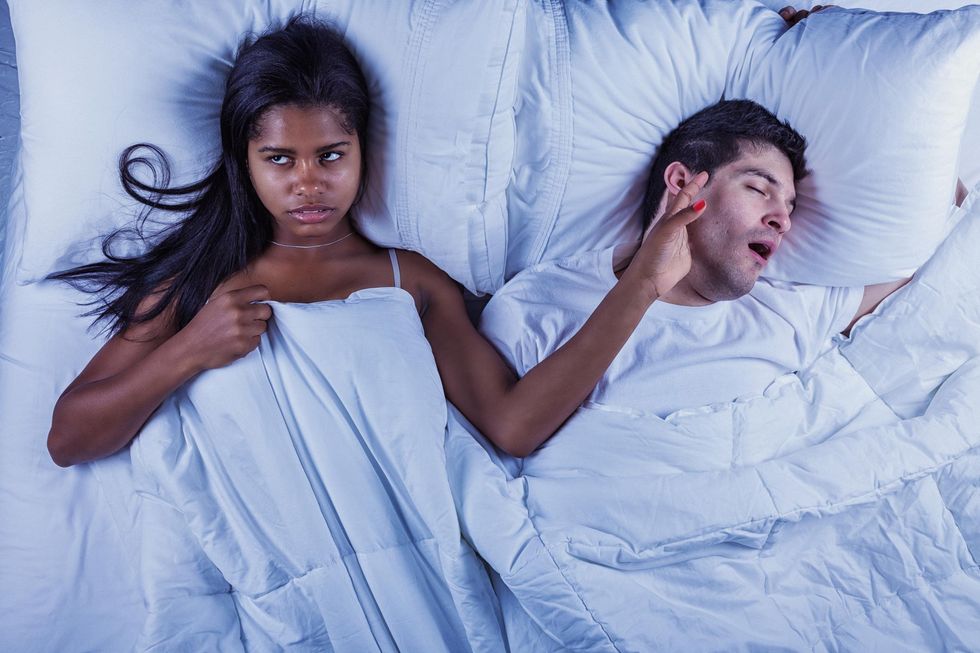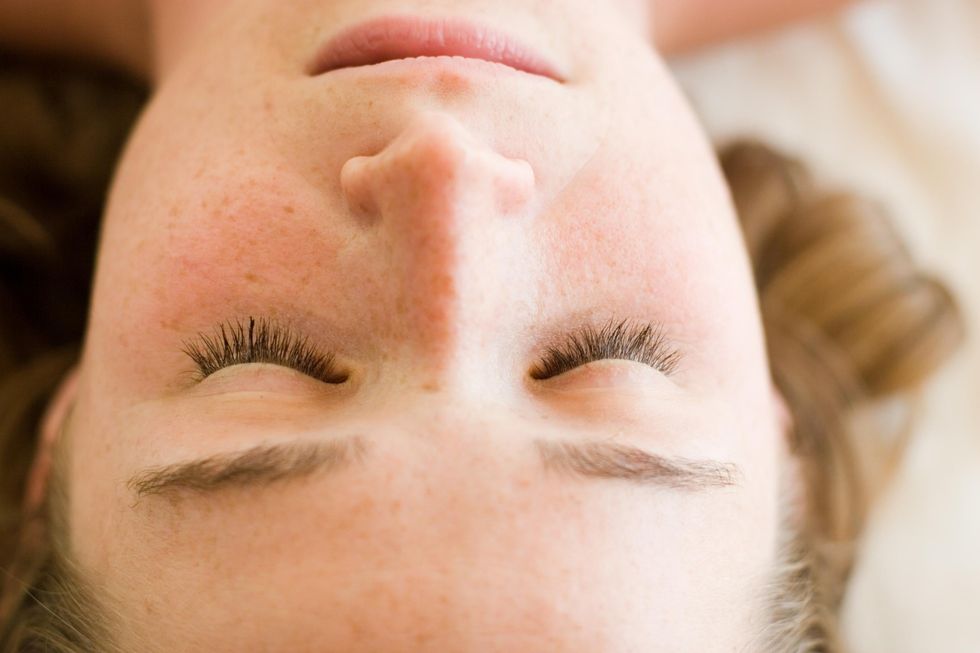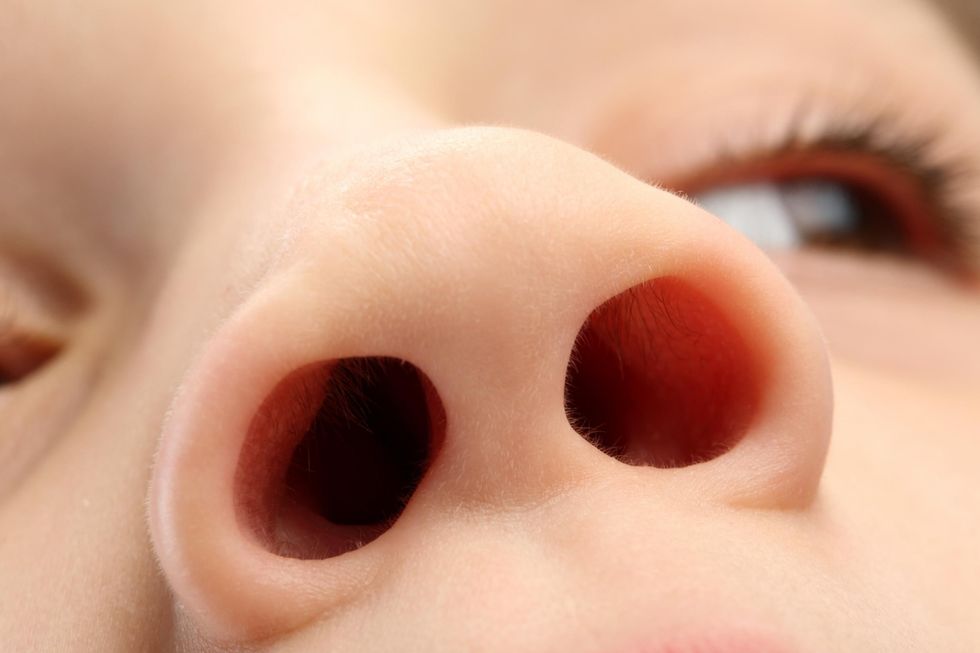News
Joe Vesey-Byrne
Oct 24, 2017

Picture:
iStock/Getty Images
We have all heard the myths about spiders crawling into your open mouth while you sleep.
Oh, you haven't? Well, you will now never be able to unthink that thought. You're welcome.
Your bed used to be the safest, cosiest place on the planet. Think again. Here are six terrifying things that can actually happen to you while you are asleep (not including Freddie Kruger).
Sleep paralysis
This is what it sounds like, an inability to move or speak while you are falling asleep or waking up. Luckily, according to the NHS, this is only temporary.
Symptoms include:
- an inability to move
- a feeling of pressure or even crushing on your chest
- hallucinations that a person is in the room with you
Sleep paralysis happens when aspects of REM (rapid eye movement) sleep occur while you are awake.
According to the NHS, REM sleep is when your brain is extremely active, and when dreams occur. Your body is temporarily paralysed by the brain during this period, possibly to stop you from acting out your dreams.
Ways to prevent it include ensuring you get a good night's sleep, as sleep deprivation has been found to be linked to episodes of sleep paralysis. Other things to consider are a family history of sleep paralysis, and sleeping on your back, which have also been associated with the condition.
Sleep apnea (obstructive)

Obstructive sleep apnea (OSA) occurs when the throat passage narrows during sleep, temporarily cutting off breathing.
Stopping breathing will not suffocate you, as sufferers from OSA regularly wake up. They may also be snoring, much to the chagrin of their partners.
Nevertheless, the idea that your throat can close up while you're asleep is horrifying.
OSA is more common in men and overweight people, as well as in smokers, heavy drinkers, and some menopausal women.
Ways to treat it include using a device to keep the airflow open, and lifestyle changes such as exercise, sleeping on your side, and cutting down on alcohol.
Sleepwalking
This occurs during a period of deep sleep, a state which is often reached just a few hours into sleep.
The idea that you should never wake up a person from sleepwalking is misleading. The NHS advises gently waking a person who is sleepwalking, after you have guided them back to their bed. This is to prevent them sleepwalking again.
What the NHS do warn against is trying to wake them up suddenly.
Don't shout or startle the person and don't try to physically restrain them unless they're in danger, as they may lash out.
Although people of any age can sleepwalk, it is more common in children, and it is thought that roughly 20 per cent of children sleepwalk at least once prior to puberty.
Sleep orgasm

This one is only terrifying in that what if it's the best one ever? Never to be properly recalled, nor recreated outside the land of nod? The horror.
Obviously a 'wet dream' is a phenomenon most commonly associated with men, but women too are capable of orgasm while they are asleep.
A study in 1983 measured women's orgasms during their sleep, and found heart rate sped up from 50 to 100 beats per minute, and breathing from 12 to 22 breaths, as well as increased blood flow to the vagina.
It is this increased blood flow that makes the orgasm possible. Psychiatrist and sex therapist Madeleine Castellanos, told Splinter that:
During REM sleep you have increased blood flow to your erectile tissue—for women it’s in the whole clitoral complex.
Your brain recognizes that you have more blood flow in those tissues, and it can lead to sexual arousal
Sleep 'falling' sensation
Another bizarre thing human bodies do as they shut down is to suddenly give you the sensation that you are falling, when you are in fact tucked up in bed.
Simple leg twitches as we drop off can wake us up, because we feel we're on a precipice and tumbled.
According to the National Sleep Foundation these are called 'hypnic jerks' and are very common (60-70 per cent of people experience them).
Sleep Education suggests some causes for a regular occurrence of these hypnic jerks (also called 'sleep starts).
- A high intake of caffeine or other stimulants
- Prior intense physical work or exercise
- Emotional stress
They are a normal part of sleep, but if they become disruptive of your sleep to great degree you should consult with your GP.
Sleep shut down

A study by Brown University in 2004 found that your sense of smell essentially shuts down while you are asleep.
While not harmful, it's quite bizarre that your brain can even do this.
The study attempted to rouse people from sleep using certain smells, including that of smoke from a fire. Worryingly it found that other senses would be needed to alert your sleeping self that there was a fire in your vicinity.
More: If you keep staying up late instead of sleeping it can shorten your lifespan, expert warns
Top 100
The Conversation (0)













